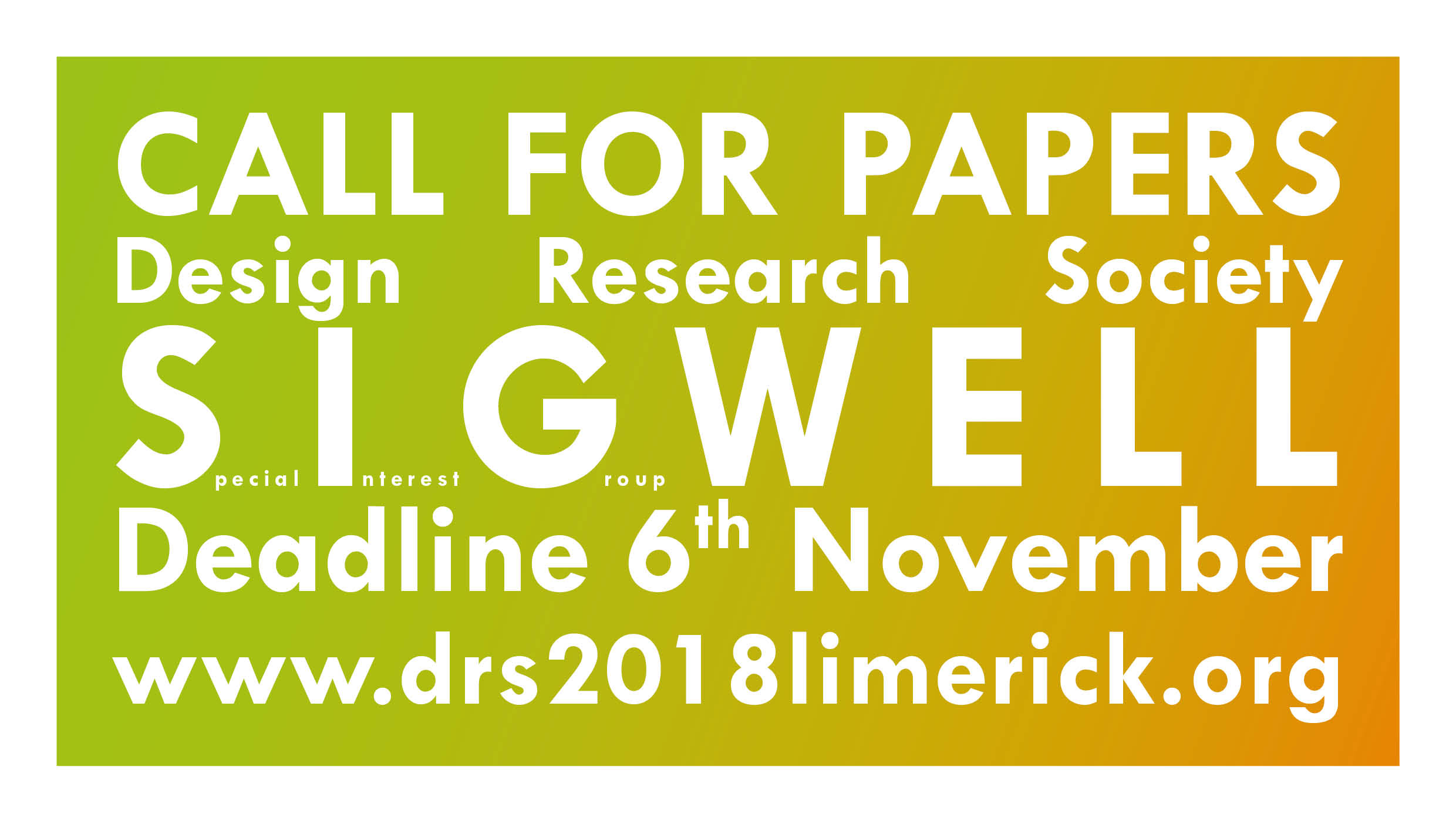Call for Papers
An important facet of wellbeing is subjective wellbeing – or happiness (as one in four people are affected by mental health conditions). It has become a multidisciplinary topic of interest for designers, psychologists, politicians and economists, over the last two decades, as the Western world has been moving from an economic/materialistic society focused on material wealth, to a more holistic and experiential society, where more value is now placed on personal experiences. There has been a realisation that we have arrived in a post-materialistic culture where experience and meaningful engagement which contributes to our wellbeing is seen as the ultimate goal, rather than ownership of more material possessions.
This change of focus from material to more personal and experiential opens up opportunities for design, and for design education. Indeed, next to in-depth research on design for SWB, the topic is also increasingly now taught at design schools. Therefore, for this session we invite papers which focus on exploring Design for Subjective Wellbeing, that is, how design can afford people to have pleasurable and meaningful experiences, thus potentially having a positive impact on their happiness. Equally, contributions that focus on design for subjective wellbeing education are particularly welcomed. Here, we aim to exchange experiences, practices, and ideas about design for subjective wellbeing education.
Contributions are invited which explore and / or demonstrate design research or design education regarding design for subjective wellbeing from across the broad landscape of products, services, systems and environments and their associated disciplines. Contributions which transcend traditional disciplinary boundaries, or illuminate international perspectives and cultures are particularly welcomed.
SIGWELL also plans to organise a corresponding workshop during DRS 2018 to bring together like-minded as well as other-minded design researchers and practitioners in the field. Of all submissions to the conference track on Design for Subjective Wellbeing, a selection of authors will be invited as thought leaders to join a moderated, interactive debate during the workshop.


